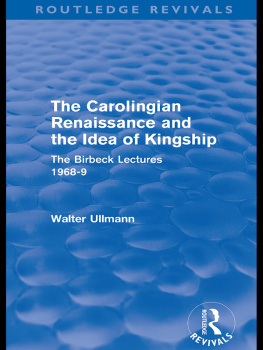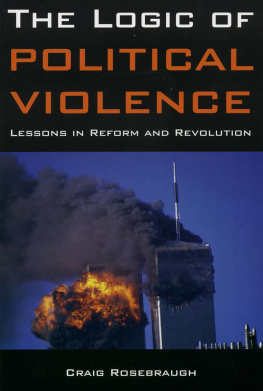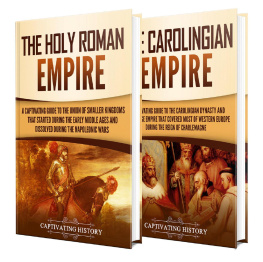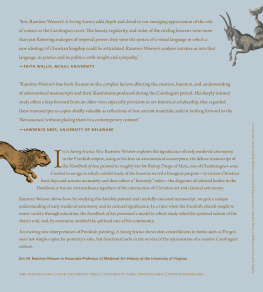Reframing the Feudal Revolution
The profound changes that took place between 800 and 1100 in the transition from Carolingian to post-Carolingian Europe have long been the subject of vigorous historical controversy. Looking beyond the notion of a Feudal Revolution, this book reveals that a radical shift in the patterns of social organisation did occur in this period, but as a continuation of processes unleashed by Carolingian reform, rather than Carolingian political failure. Focusing on the Frankish lands between the rivers Marne and Moselle, Charles West explores the full range of available evidence, including letters, chronicles, estate documents, archaeological excavations and liturgical treatises, to track documentary and social change. He shows how Carolingian reforms worked to formalise interaction across the entire social spectrum, and that the new political and social formations apparent from the later eleventh century should be seen as a long-term consequence of this process.
CHARLES WEST is Lecturer in Medieval History at the University of Sheffield.
Cambridge Studies in Medieval Life and Thought
Fourth Series
General Editor:
Rosamond McKitterick
Professor of Medieval History, University of Cambridge, and Fellow of Sidney Sussex College
Advisory Editors:
Christine Carpenter
Professor of Medieval English History, University of Cambridge
Jonathan Shepard
The series Cambridge Studies in Medieval Life and Thought was inaugurated by G. G. Coulton in 1921; Professor Rosamond McKitterick now acts as General Editor of the Fourth Series, with Professor Christine Carpenter and Dr Jonathan Shepard as Advisory Editors. The series brings together outstanding work by medieval scholars over a wide range of human endeavour extending from political economy to the history of ideas.
This is book 90 in the series, and a full list of titles in the series can be found at: www.cambridge.org/medievallifeandthought
Reframing the Feudal Revolution
Political and Social Transformation Between Marne and Moselle, c .800 c .1100
CAMBRIDGE UNIVERSITY PRESS
Cambridge, New York, Melbourne, Madrid, Cape Town, Singapore, So Paulo, Delhi, Mexico City
Cambridge University Press
The Edinburgh Building, Cambridge CB2 8RU, UK
Published in the United States of America by Cambridge University Press, New York
www.cambridge.org
Information on this title: www.cambridge.org/9781107028869
Charles West 2013
This publication is in copyright. Subject to statutory exception and to the provisions of relevant collective licensing agreements, no reproduction of any part may take place without the written permission of Cambridge University Press.
First published 2013
Printed and bound in the United Kingdom by the MPG Books Group
A catalogue record for this publication is available from the British Library
Library of Congress Cataloguing in Publication data
West, Charles, 1979
Reframing the feudal revolution : political and social transformation between
Marne and Moselle, c.800 to c.1100 / Charles West.
pages cm. (Cambridge studies in medieval life and thought. Fourth series ; book 90)
Includes bibliographical references and index.
ISBN 978-1-107-02886-9 (hardback)
1. Carolingians France Marne River Valley History. 2. Carolingians Moselle River
Valley History. 3. Social change Europe History To 1500. 4. Political
culture Europe History To 1500. 5. Feudalism Europe History To 1500. 6. Marne
River Valley (France) Politics and government. 7. Moselle River Valley Politics and
government. 8. Marne River Valley (France) Social conditions. 9. Moselle River
Valley Social conditions. 10. Europe History 476-1492. I. Title.
DC70.W47 2013
944.3014dc23
2012042957
ISBN 978-1-107-02886-9 Hardback
Cambridge University Press has no responsibility for the persistence or accuracy of URLs for external or third-party internet websites referred to in this publication, and does not guarantee that any content on such websites is, or will remain, accurate or appropriate.
Contents
Acknowledgements
If it takes a village to raise a child, it takes almost as many people to write a book, especially one as long in preparation as this. In first place, I should like to thank Rosamond McKitterick, who supervised the PhD thesis that was really this books first draft, and who has continued to offer tremendous advice and support ever since; and Chris Wickham, who supervised the MPhil dissertation in which I first grappled with the Feudal Revolution and the Carolingians, who examined the PhD, and who has been very generous with his time subsequently. I am acutely conscious of my debt to Matthew Innes and Stuart Airlie, who acted as examiners at different stages and gave me much less of a hard time than I deserved, and from whose thoughts I have benefited on many other occasions besides. I am very grateful to Liesbeth van Houts, who over a decade ago supervised an undergraduate dissertation which first led me to think about the twelfth century in relation to the ninth, and to Rgine le Jan, who facilitated a stay in Paris and made me feel very welcome there. I would also like to thank the anonymous Readers for this series, whose suggestions have greatly improved what follows. It need hardly be added that the errors in interpretation or detail that follow are entirely my own.
Many others have played a part in the slow gestation of this book, directly or indirectly. Lists are always invidious when incomplete, and this one is no exception; but it would be shameful not to register my gratitude to Aysu Dincer, Olga Magoula and Duncan Probert, all of whom I met in Birmingham; Helen Carrel, Thomas Faulkner, Julian Hendrix, Paul Hilliard, Christina Pssel, Christof Rolker and the GEMS in Cambridge; Rachel Stone in London; Christopher Tyerman in Oxford; Miriam Czock, Wolfgang Haubrichs, Sylvie Joye and Jean-Baptiste Renault in Germany and France; and Michael Raw and Mark Stephenson in Cumbria. Since 2008, Sheffield has provided a most convivial place to work, thanks to Sarah Foot, Julia Hillner, Simon Loseby, Amanda Power, Martial Staub and all my other colleagues in the History Department, both academic and support staff, as well as its students, notably those of HST 3115/6.
Debts to institutions may not be as personally felt as those to supervisors, examiners, colleagues and friends, but institutions are vitally important in enabling a long-term project like this to come to fruition. The Arts and Humanities Research Board, and then the Arts and Humanities Research Council, funded the postgraduate work from which this book grew, with the University of Birmingham and Emmanuel College providing the scholarly environment; I am grateful, too, to the Fellows of Hertford College for electing me to a Research Fellowship, and to the Drapers Company for providing the wherewithal for them to do so. I have also benefited from the resources of what I maintain to be the best library in the world, the Cambridge University Library, whose help in procuring the foreign-language material that research projects such as this require was invaluable: this book simply could not have been written without the University Library and its wonderful staff. Other libraries, archives and research institutes have also been very accommodating, particularly the Bibliothque Nationale and the Institut de recherche et dhistoire des textes in Paris, libraries in Epinal, Nancy, Oxford, Rheims, Trier and Verdun and archives at Bar-le-Duc, Chlons, Metz, Rheims and Troyes: my thanks to them all.









